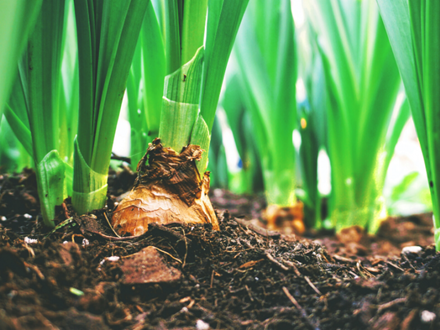The way we grow our food has a huge impact on our waterways, our climate and our waste. But, what if there was a way to improve water quality, reduce emissions and provide nutritious food that was good for the planet and our people?
Regenerative agriculture is about going back to farming basics. It is focused on enriching soils through diversity (crops, pastures and animals). Regenerative practices and principles can be achieved through a number of land management practices, including organic, biodynamic, permaculture and carbon farming. It’s about building resilient farm systems through deeper connections between people, food and the land.
Recently we hosted an online event called ‘Go Regenerative’ and invited five presenters to share their insights and knowledge. We heard from a regenerative farmer in the Wairarapa; an urban farmer in the heart of the city; a community farmer who has reclaimed an old bowling green; an ecological economist sharing a vision to regenerate oceans; and for the children (and the young at heart), Blossom the fairy shared how kids can grow plants in their own backyard! Find out what you missed by viewing the full event here.
Want to do something right now? Here are five ways you can support regenerative agriculture.
- Buy regenerative products (if you can)
The products we choose to buy, where they come from, how they are grown and what happens at the end of their life are essential in creating a food system that is better for our planet. Try and find out where your food comes from. Ask sellers at the farmers’ market if they follow regenerative practices. Are they organic? What are they doing to regenerate the land?
- Get your hands dirty
We can all become urban farmers and grow food regeneratively. Even if you don’t have any experience in farming or growing food, now is a great time to start. Connect with your local community, find out what’s happening and help out at your local community garden, or, work with your neighbours.
- Join the movement
There are many people already doing it! The regenerative agriculture movement is a collective, collaborative space so don’t be afraid to ask for help.
The Urban Farmers Alliance (UFA) is a collaboration, and since inception, it has grown to a collective of nearly 60 people from 35+ diverse regenerative projects across Aotearoa. Their mission is to build local food security and climate change resilience. At its core, the UFA is a mentoring platform. Members of the UFA receive expert mentoring, contribute to a commons of knowledge and innovation, and participate in peer-to-peer mentoring.
If you are interested in getting involved check out the UFA website for more information and resources. They are also just about to launch a YouTube channel of short videos, including step-by-step walkthroughs of regenerative food production for beginners!
- Extend your horizons
Did you know that regenerative agriculture isn’t restricted to farming on land? It applies to our oceans, too. Seaweed has the ability to help the planet combat food security, mitigate climate change and help clean our oceans. Seaweed is said to grow 30-60 times faster than any land-based plant and sequesters carbon 20 times faster.
However, there is not yet a seaweed farming sector in NZ. With a large coast, many harbours and temperate waters, there is a huge opportunity to grow this industry in NZ. How we do this is going to be key! For more information visit Pure Advantage.
Be open to new ideas and innovations to combat climate change. Look at what’s happening around you and spread the message within your networks.
- Teach the next generation.
It’s also important to get the kids thinking about where their food comes. Start a vegetable garden at home to get them to appreciate, enjoy and preserve nature. Start small with a crop like sprouts then get more adventurous.
Enviroschools is an environmental action-based programme where young people are empowered to design and lead sustainability projects in their schools and neighbourhoods. Find out if your school offers this programme!
This was the third event in our Food Forum series in partnership with Wellington City Council. Our next food forum will be exploring food security in Wellington. If you would like to be contacted when registration opens for this event please email holly@sustainable.org.nz

